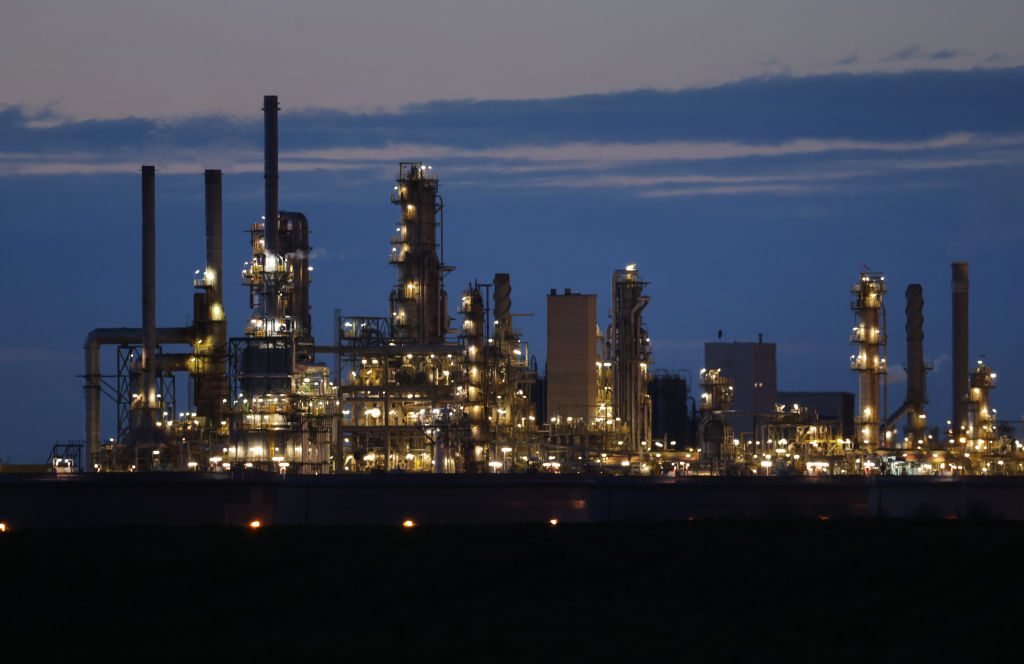EU pushes OPEC to boost oil output as bloc weighs up ban on Russian supplies

European Union (EU) officials will hold talks with OPEC representatives today in Vienna.
This follows continued calls from the West for the cartel to boost its output this year.
OPEC has resisted pressure in recent months from the US, UK and International Energy Agency (IEA) to pump crude at faster to cool prices, which reached a 14-year peak last month after the UK and US imposed import bans on Russian oil following its invasion of Ukraine.
This has tightened the markets, provoking the IEA and US into commitments to flood the market with 240m barrels through historic releases from strategic reserves.
Prices soared to $139 per barrel on March 7 with geopolitical tensions influencing market movements, before regressing over the following weeks – dipping below $100 again on both benchmarks last Thursday following the IEA’s response to the crisis.
Rather than ceding to Western pressure, the organisation and its allies (OPEC+) are committing to modest pledges to increase output by a further 432,000 barrels per day in May.
However, OPEC+ has persistently failed to meet raised production targets in recent months, with multiple members not achieving required quotas.
Oil ban could follow coal restrictions
The EU is hoping to keep down energy prices, as the bloc considers imposing sanctions on Russian oil – with concerns of Kremlin reprisals such as further restrictions on gas purchases if the West extends it measures.
Natural gas shortages and spiralling wholesale costs raised concerns over blackouts last winter, with the bloc staving off a potential crisis through imports of US liquefied natural gas.
Nevertheless, the European Commission is now drafting proposals for an oil embargo on Russia.
This was confirmed to news agency Reuters by the foreign ministers of Ireland, Lithuania and the Netherlands, who are meeting all of their EU counterparts today in Luxembourg.
Russian oil has been excluded from EU sanctions so far – with the group relying on the Kremlin for around a quarter of its supplies.
However, its stance has hardened following reports of mass executions of Ukrainian civilians in Bocha, alongside Russian President Vladimir Putin’s signing into law requirements for overseas buyers to pay for its gas in roubles.
Last week, the 27-member bloc agreed to sanction Russian coal – its first to target energy supplies, while Lithuania has unilaterally opted to restrict Russian gas this month.
The measures have been pushed back a month to mid-August, but it is expected that the ban will still go through.
EU split over extending sanctions
The EU has spent nearly $30bn on Russian fossil fuels since the country invaded Ukraine – considerably more than its pledges of support for Kiev.
Irish Foreign Minister Simon Coveney said: “The European Union is spending hundreds of millions of euros on importing oil from Russia, that is certainly contributing to financing this war. We need to cut off that financing … the sooner that can happen the better.”
The UK has already committed to phasing out Russian oil – while the US has banned all Russian fossil fuel imports.
The continent is split over whether to follow suit, given the EU’s higher dependency on Kremlin-backed energy supplies, with the measures needing unanimous approval from the 27 members.
The European Parliament last week voted for an embargo, but its decision is not binding.
Germany and Austria both remain hesitant about the prospect of banning Russian oil and gas – and have triggered emergency measures to deal with potential supply shortages.
German Foreign Minister Annalena Baerbock has called for a “coordinated plan to completely phase out fossil fuels” from Russia.
However, EU diplomats told news agency Reuters the country is not actively supporting an immediate embargo.
Meanwhile, Hungary has announced it plans to pay for Russian gas in euros through Gazprombank.
The decision was confirmed today by the country’s Foreign Minister, Peter Szijjarto.
Despite the divisions, the EU is aiming to cut its dependency on Russian gas by two-thirds this year, and end Russian fossil fuel imports by 2027.